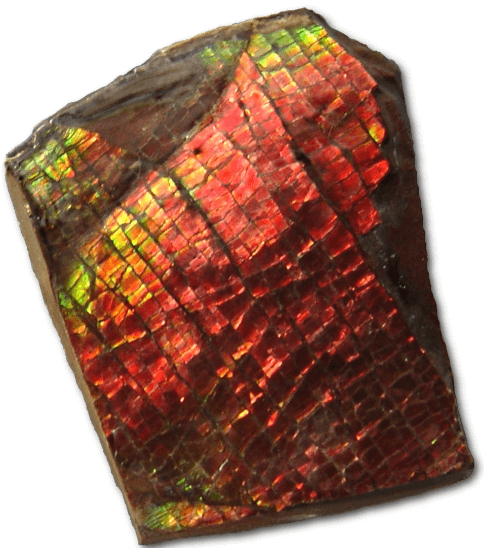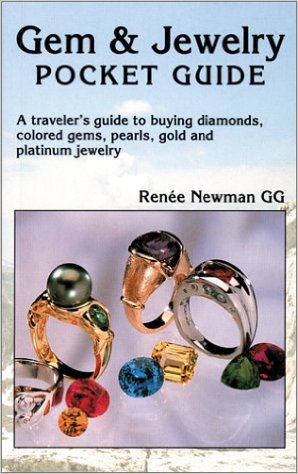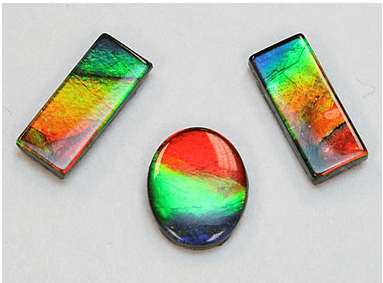
Ammonite is an iridescent gem formed within an ancient marine fossil for which it was named—ammonite. Originally discovered by the Blackfoot Indians, ammolite is mined only in Southern Alberta, Canada. Most ammolite is assembled into doublets or triplets to increase durability because solid ammolite is usually thin and fragile, If it’s untreated and solid, ammolite is usually priced per carat and shaped as a freeform to maximize weight. Extra fine quality ammolites display three or more sharp, brilliant colors with no obvious dark areas except for fine lines which separate the patches of color. The narrower the lines the better. The most prized stones are those that exhibit the full color spectrum including blue and purple, which are the rarest colors, but ammolite with only two bright and brilliant colors can also be attractive. Red and brown are the most common colors, so stones with those predominant colors sell for less. Thick dividing lines and dull, grayish colors also lower the price.
Basic ammolite data
Chemical composition: (CaCO3) A form of aragonite from fossilized ammonite, an extinct shellfish. RI: 1.525–1.67, Hardness: 3.5–4, S.G. 2.75-2.84
Ammolite care tips
Avoid ultrasonics, rough wear, heat and chemicals. Clean with damp soft cloth. Korite International, the largest producer of ammolite, recommends limiting contact with water while wearing ammolite. Some locates have high mineral content in the water and these minerals can deposit on the surface of the ammolite and setting.
For a more in-depth discussion of ammolite, consult Exotic Gems, Volume 1 by Renée Newman and the Spring 2001 & Fall 2009 editions of Gems & Gemology. 


